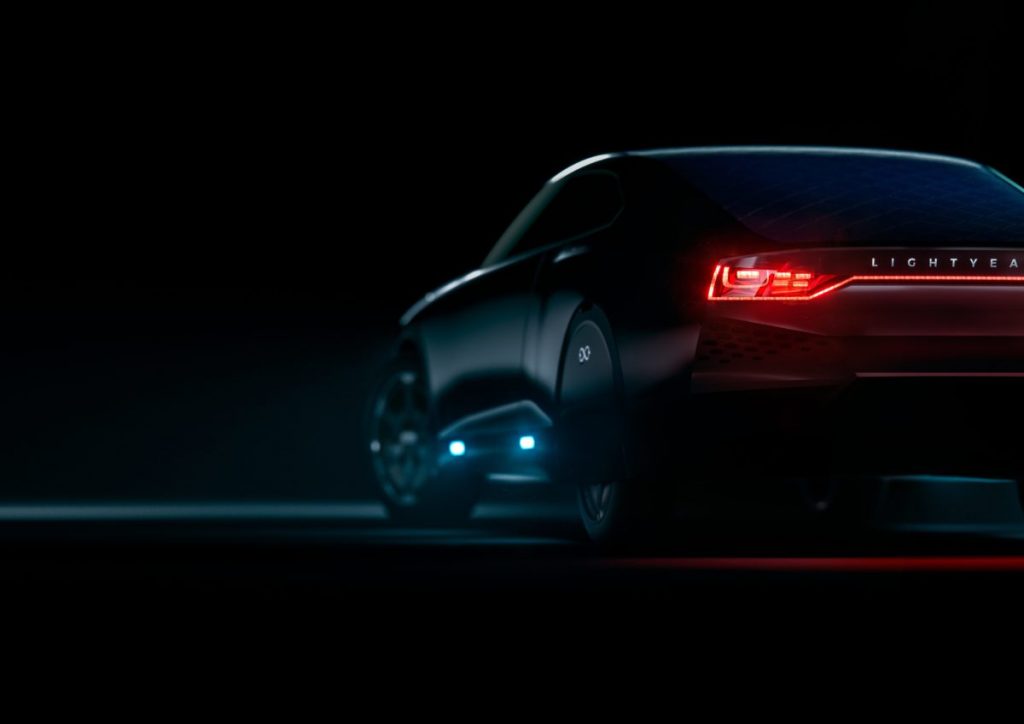World’s first solar-powered passenger car on roads next year
A Dutch start-up has designed an electric vehicle that runs solely on solar energy, and aims to deliver its first models next year. The car will also be available to lease.

Dutch start-up Lightyear is aiming to deliver the world’s first commercial electric vehicle (EV) that runs entirely on solar power next year.
The idea of EVs powered by integral solar cells is gaining momentum. Hyundai and Kia Motors, for example, are developing EV solar roofs, and there are several solar car races around the world featuring non-commercial prototypes.
Lightyear is taking the idea to a new level by preparing commercial production of its solar powered car – the Lightyear One. And the firm is collaborating with Dutch peer LeasePlan to make the Lightyear One available for leasing.
LeasePlan told pv magazine Lightyear One – “the world’s first passenger car running on solar energy” – will soon be available to reserve via its website. “This makes the car directly accessible to a broader corporate target group,” said a LeasePlan press release.
Lightyear One
Buyers of the Lightyear One – which comes with a 400 km or 800 km range buffered in the battery – can reserve one now for delivery next year. However the eco-friendly auto does not come cheap, with prices starting from €119,000, excluding taxes. Buyers who choose a post-2020 delivery date can at least pay a smaller deposit.
The Lightyear One, which can accommodate five people, can charge from sunlight, a standard household power socket or EV charging point, or an EV fast charger. It can drive for up to 800 km without sunlight and features a household power socket to charge phones or tablets on the move.
The innovative model will also be capable of supplying solar energy to a house.
Lightyear, founded by solar car race enthusiasts and champions, has had backing since 2016 “from several seed investors from whom €2.4 million in convertible loans was raised,” said the company. The firm, which has also had EU support, said in April it had “raised an additional €2.5 million in equity from investors”.
Europe’s EV market update
LeasePlan recently published an index for the EV market and infrastructure in Europe that examined 22 countries.
For the first time, LeasePlan said, all the countries in its index improved their scores compared to the previous year. The improvements came primarily thanks to greater availability of EV models with longer ranges and a better charging network.
Norway, the Netherlands, Sweden and Austria topped the 2019 index with 34, 33, 29 and 28 points, respectively. Greece and Poland were the least EV-ready countries, with 10 and nine points, respectively.
The data measured to rank EV-readiness included maturity of electric vehicle market – measured by the total number of registered EVs; maturity of charging infrastructure – number of available public charging points; and availability of government incentives such as tax breaks.
There was a significant gap between the improvement efforts undertaken by the 22 countries. In the first three quarters of last year, for example, Greece and Poland registered only 231 and 958 electric vehicles, respectively, while Norway and the Netherlands registered 52,038 and 17,349.
Similarly, while the Netherlands has the most public charging points – 83,196 – followed by Germany (37,405) and France (34,558), Greece bottomed out the list with just 159.
Even with the numbers adjusted for population size, the top three countries for public charging points per 1,000 inhabitants were the Netherlands – with 4.8 – Norway (4.5) and Luxembourg (1.9), with Greece and Poland having 0.01 and 0.02, respectively.
Overall, LeasePlan said: “EV market share is now in the mid-single digits in Portugal (3.1%), the Netherlands (5.1%), Finland (5.2%) and Sweden (7.6%), while Norway remains the undisputed leader, with EVs accounting for 53% of all newly registered vehicles.”
From: https://www.pv-magazine.com/2019/02/14/worlds-first-solar-powered-passenger-car-on-roads-next-year/

